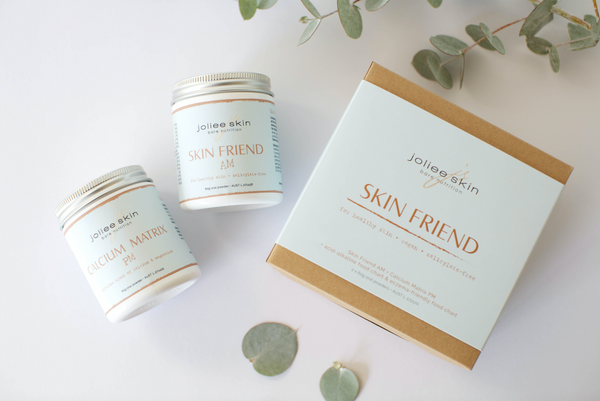Is coconut good for my eczema?

Coconut has become one of the most popular health food products of the decade and this is the most frequent question Karen Fischer, from the Eczema Life Clinic in Sydney, is asked by people with eczema.
Karen says "No, it's not good for eczema if you are sensitive to salicylates."
The response is usually one of the following:
"Thank you. I have been eating coconut for a week and I wondered why I'm so incredibly itchy."
"I thought I was reacting to it as my eczema was so bad this week. But everyone says it's good for eczema so I kept using it."
Don't ignore what your skin is telling you. If you are sensitive to salicylates, then coconut oil, coconut water (coconut in anything) will make your skin flare up, itch, look red and splotchy and it could keep you awake at night. Find out more about salicylate sensitivity, below, as you probably don't know you have it.
Karen says "As coconut can aggravate eczema, it is not an eczema-safe ingredient in The Eczema Diet. However, after you have completed the Eczema Diet 12-week program, if you would like to test how your skin reacts to coconut, then try it and see if you are sensitive to it. Adverse reactions can occur anywhere up to two days after consuming it, so introduce one new food every three days so you can spot a coconut-induced reaction."
Is it okay to apply coconut oil (externally) to my skin?
It depends... many eczema sufferers find their skin reacts to coconut oils, with increased itchiness, stinging and/or redness. There are some people who like it (so that's fine for them to use it), but it's not usually hydrating enough for most people with eczema.
Karen says "My personal experience with coconut oil is I find it dries out my skin. I naturally have dry skin and coconut oil just sinks in too quickly and leaves my skin flakey and dry by the end of the day. My verdict - it's a terrible moisturiser for people with dry skin. For those with normal to oily skin, you might like it. The best way to know is to test it for yourself."
What are salicylates and why are they bad for eczema?
Salicylates are a natural pesticide made by some plants to protect themselves from bugs and spoiling. High amounts of salicylates naturally occur in herbs, coconut, almonds, avocado, teas, green detox powders, honey and fruit extracts and vegetable extracts.
People with eczema and other skin inflammatory disorders often don’t realise they are sensitive to sailcylates (1). In fact, eczema sufferers are often told to eat a wide range of high salicylate foods, such as spinach, avocado and coconut, and they are disheartened when they skin gets worse and not better (2).
Signs and symptoms of salicylate-sensitivity
Signs of salicylate-sensitivity vary from person to person and include:
- eczema and other skin rashes
- hives, itchy skin
- headaches, migraines
- hyperactivity, behavioural problems
- irritable bowel disorder symptoms, stomach cramps
- runny nose, hay fever
- reflux, nausea
- anxiety, depression
- sleep disturbances, bedwetting and insomnia.1
Salicylate statistics (from NSW Government website, ref below)
- Salicylates worsen/trigger eczema in 52 to 62% of people with eczema, hives and/or skin rashes
- Salicylates worsen/trigger irritable bowel symptoms in 69% of people with IBS
- Salicylates trigger migraines in 62% of people prone to migraines
- Salicylates trigger behaviour abnormalities (such as ADD) in 74% of people behaviour issues
- Salicylates trigger lethargy and a range of systemic symptoms in 74% of people with systemic symptoms (symptoms affecting the whole body)
So recommending coconut to this group of people is risky as it can worsen their eczema symptoms, such as increased itch, bleeding and infections.
Until you have diagnosed and ruled out salicylate-sensitivity don't eat coconut.
Karen Fischer from the Eczema Life Clinic in Sydney says "I have worked with hundreds of patients with severe eczema and/or topical steroid withdrawal and we found when they ate high-salicylate foods their eczema did not clear up. Even keeping one salicylate-rich food in the diet, such as coconut, prevented their recovery from eczema. It's only when we temporarily took out all medium to high salicylate foods that their eczema completely cleared up (with the addition of supplements and good nutrition to help reverse the problem).
On the other hand, there are other patients with mild to moderate eczema who can eat some salicylate-containing foods and still recover (while also following The Eczema Diet). While they reacted adversely to coconut (a high sal food), their skin was good when they included some medium salicylate foods such as carrot and sweet potato in their diet. So it is often dose-dependent and the goal with the diet and supplements is to reverse salicylate sensitivity and expand the diet after 12-weeks. We have seen amazing results."
What are low-salicylate foods?
We have provided a list of low and high salicylate foods and beverages which can be useful for people with skin rashes and allergy/sensitivity symptoms. You can access a free copy of the Complete Salicylate Food Charts when you sign up to our website here >>
SHOP THE STORY
Buy The Eczema Diet (low-salicylate diet) >>
Buy Skin Friend (salicylate-free supplements for eczema) >>
References
1. Loblay, R.H. and Swain, A.R., 2006, ‘Food Intolerance’, Recent Advances in Clinical Nutrition.


